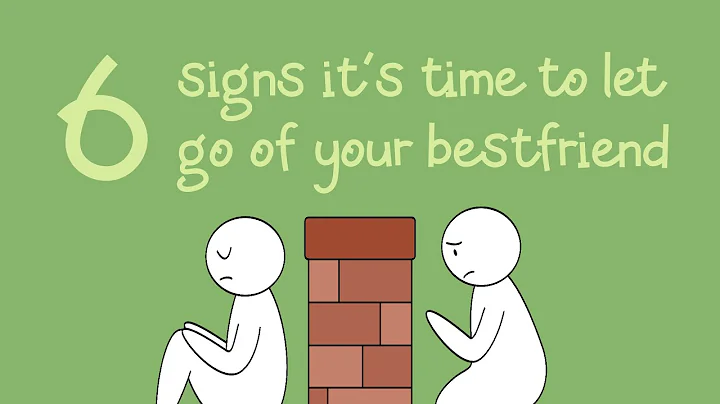Some time ago, I looked through my high school and college diaries and found that they were filled with a lot of dissatisfaction with myself. I was dissatisfied with myself for sleeping in, being dissatisfied with checking my phone all the time, and being dissatisfied with myself for procrastinating in doing things.
Several diaries were full of scoldings from beginning to end, but I didn't make any improvement. I seriously doubted that I was trapped in an infinite loop at that time.
In short, I do everything but work hard. I can do nothing but hate myself.

In fact, many people have faced this problem, which is the cycle of "procrastination, self-blame, and procrastination again".
On the one hand, we despise ourselves, feel so decadent, frustrated, and useless, and want to work hard, but after a while, we continue to play games, binge-watch TV series, and binge-watch information.
So why do we fall into this cycle of “procrastination, self-blame, and procrastination again”?
because, painful.
Human nature is to seek advantages and avoid disadvantages. In the process of evolution, our brains have always followed the first principle: survival.
Whatever makes us feel happy, we want to be close to. We want to stay away from anything that causes us pain. It is precisely because of the brain's characteristic of seeking advantages and avoiding disadvantages that we can survive.
We want to make ourselves motivated by blaming ourselves. As a result, we associate our current tasks with pain.
When we think about studying and working, we will have more self-doubt about ourselves, feel more pressure, and have stronger anxiety.
And this will make us want to escape even more. In order to relieve stress, anxiety and pain, we have to choose various forms of entertainment to numb ourselves and relieve our uneasiness.
In the end, we fall into a cycle of procrastination, self-blame, and procrastination again.
So, how can we get out of this cycle?
1. Stop blaming yourself
The more you blame yourself, the more you will escape, not the harder you will work. This is also my biggest feeling these days.
I am trying to make videos recently. Looking at other people's videos, they are so popular. They can be viewed hundreds of thousands of times, and one video can gain tens of thousands of followers.
However, my videos only have less than a few hundred views and a single-digit increase in followers. I also wonder if what I make is boring and worthless. As I thought about it, I felt that I was really useless and wanted to give up.
If it weren’t for some of my past experiences that gave me a little confidence, I probably wouldn’t have persisted for so long.
Most people think so. Keeping labeling ourselves waste will only make us slowly become waste. Always despising yourself as inferior to others will only make you more and more powerless.
The reality is frustrating enough, but we still blame ourselves and add salt to our wounds. The result is that we dare not face study, work, or other tasks.
So, if we want to stop the cycle of procrastination, self-blame, and procrastination again, we must first stop blaming ourselves.
When we are lazy at work and study, we should not blame ourselves or feel that we are decadent and unmotivated. Instead, we should regard ourselves as making a mistake that is made by both men and women all over the world.
No one can stay focused 24 hours a day like a robot. What's more, robots also need to be charged and can get stuck, so we have to allow ourselves to be lazy occasionally. This is normal human nature and there is no need to blame yourself.
When you are not doing well enough and are worse than others, don't blame yourself or feel that you are useless. The vast majority of people are ordinary people who are trying and making mistakes, constantly accumulating experience, and doing things slowly.
Maybe bad feedback makes us uncomfortable, but they are also the cornerstone of progress, otherwise we will never know where our problems are and what the gaps are with others.
In short, bad reality will make us have a lot of bad emotions, but blaming ourselves all the time will only make ourselves unable to extricate ourselves from the cycle and get stuck in it.
Only by allowing ourselves to make mistakes, allow ourselves to be lazy, and allow ourselves not to be good enough can we slowly come out.
2. Don’t make false and empty plans
Making plans that are too false and empty will also lead us to repeat the same mistakes. why? Because being too optimistic and having too ambitious plans will only make us full of fighting spirit in the short term, but in the long run, it will be full of pressure and no hope.
When we make plans, we have a lot of visions and imaginations about the future, which will give us a lot of motivation. Therefore, when many people make plans, they are as high-spirited and complacent as if they were in a hurry.
However, when is executed, we will find that this plan is not feasible at all, because people always overestimate their abilities, underestimate the difficulty of the goal, and ignore the impact of the objective environment.
The result is that, despite all our efforts, we cannot execute the plan well. Heavy tasks make us breathless, lack of hope makes us want to escape, and our tired bodies are overwhelmed. Eventually, we fall back into the cycle of procrastinating, blaming ourselves, and procrastinating again.
Therefore, when we make plans, we must base them on our actual situation as much as possible. If you have an exam score of 300, don't think about getting into 985 or 211; if you weigh 250 pounds, don't think about losing 100 pounds in three months; don't think about overcoming bad habits that have been accumulated over the years.
When we make plans, we can try to have fewer goals. Don't always think about wanting everything, and end up doing nothing well.
In addition, you should also have less workload, more time, and let yourself take a few more breaths. Finally, we must also have lower requirements for ourselves and be less perfectionistic .
3. Don’t be eager for quick success
Reality is not like a game. You will get gold coins if you defeat the monsters. On the contrary, many things are tiring to do and there is no feedback.
I remember that when I was in high school, my English was relatively poor. Then, I spent most of my time on English and worked hard for a semester, but my English score remained the same.
The reality is so cruel. This is true for other things such as losing weight, working, studying, and improving personal abilities.
However, this does not mean that there is a problem with the method, nor does it mean that the effort is meaningless. But efforts need to be accumulated.
The relationship between reward and effort is not linear. Early efforts often fail to get enough feedback, but long-term persistence will give you hope.
This is like climbing a mountain. It feels like you can never see the top of the mountain, but you can reach it if you persist.

People overestimate changes in a short period of time and underestimate long-term accumulation. Most people expect too much in the short term.
When you don’t get feedback for your efforts, you will doubt your efforts and think about giving up. Then, after a while, I feel that I can do it again, and a new cycle of hard work and self-doubt begins.
If we want to escape from this cycle, we need to maintain patience and perseverance and not be eager for quick success. We can try to adjust our expected return time.
For example, ask yourself, what will I bring if I insist on writing for three years instead of three months? If I persist for five years instead of five days, can I become an expert in the field? If I try thirty times instead of three, will the results be different?
In short, everyone hopes to receive feedback on their efforts, which is also our source of motivation. In reality, if you do a lot of things, you will get nothing in the short term, but you will get more and more in the long term.
What we have to do is to look further and be more patient than others.


















![[MULTI SUB] 《重生归来,时总这次换我来爱你》💕马小宇&李艺璇✨(高清全集)#短剧 #drama #minidrama #精彩短劇推薦 - DayDayNews](https://i.ytimg.com/vi/if8dmUKO7co/hq720.jpg?sqp=-oaymwEcCNAFEJQDSFXyq4qpAw4IARUAAIhCGAFwAcABBg==&rs=AOn4CLCVOwgd6Fx6vfTNtlD3KClb1iw9dg)
![[MULTI SUB][Full] "After a Misdiagnosis of a Terminal Illness, My Husband Stubbornly Pursues Me" - DayDayNews](https://i.ytimg.com/vi/IWc7UE4o0ro/hq720.jpg?sqp=-oaymwEcCNAFEJQDSFXyq4qpAw4IARUAAIhCGAFwAcABBg==&rs=AOn4CLDDc8PWu3Lc7Rk-MM8IL0hjY7lnzg)
![[MULTI SUB][Full]"It's Finished! I'm Being Targeted by the Devil CEO" - DayDayNews](https://i.ytimg.com/vi/0Y4dD0lP4io/hq720.jpg?sqp=-oaymwEcCNAFEJQDSFXyq4qpAw4IARUAAIhCGAFwAcABBg==&rs=AOn4CLAMfOJO6xJK0HicEVImNEu6QxNxvA)
![[ENG SUB][Full-The ending is in the comment area] "Mr. Bo, are You Interested in Getting Married?" - DayDayNews](https://i.ytimg.com/vi/FAewfSJrQ1U/hq720.jpg?sqp=-oaymwEcCNAFEJQDSFXyq4qpAw4IARUAAIhCGAFwAcABBg==&rs=AOn4CLDxmNNuPNnqsP2C095ezbMaZcFoXA)